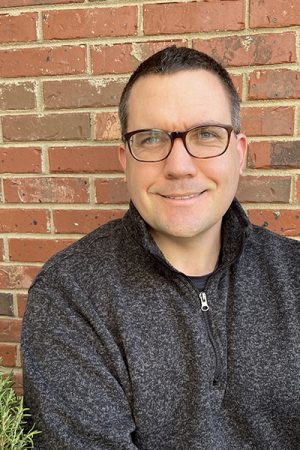• Assistant Professor
Migration, Work, Sustainability, Urban-Economic Geography
I am an urban-economic geographer and interdisciplinary social scientist who studies the geographic dimensions of migration, work, and sustainability. More specifically, I seek to understand who moves where and why in a global context, how individuals and groups experience and navigate work differently across space, and how places create human and social capital for sustainable development.
My teaching and research interests are integrally linked, emphasizing global trends and interdisciplinary approaches. I have regional expertise in the Middle East, where I have studied migration and labor market dynamics in the oil-rich Gulf Arab states of Qatar and the United Arab Emirates, and the global cities of Doha, Abu Dhabi, and Dubai. A methodological specialty in quantitative survey research is a common basis for much of my research. Before joining UNC Charlotte, I worked as a Research Associate Professor and Senior Policy Analyst at Qatar University’s Social and Economic Survey Research Institute (SESRI). SESRI is an academic survey research center established in association with the University of Michigan’s Institute for Social Research. Before SESRI, I worked as an Assistant Professor at Texas A&M University.
At UNC Charlotte, I have extended my research in the US context, exploring how social and political attitudes shape migration decision-making and locational preferences (Ewers & Shockley 2023), the emergence of new geographies of inequality with the transition to remote work (Ewers & Kangmennaang 2023), and the human and social capital dynamics of energy transition and climate change in the US (e.g., Brannstrom, Ewers & Schwarz 2022). I am especially excited to leverage my international and interdisciplinary experience to engage the Charlotte community for a 2023-2024 Gambrell Faculty Fellowship project entitled, “Charlotte Atlas of Climate Inequality and Community Resilience,” (with UNC Charlotte colleagues T. Shull, M. Ranis, and A. Bennett).
Teaching and Research interests
– Migration and mobility
– Human capital and labor markets
– Urban and regional economic development
– Oil economies and energy transition
– The Middle East
Teaching at UNC Charlotte
GEOG 2165 “Patterns of World Urbanization”
GEOG 3000/INTL 3001 "Geography of the Middle East"
GEOG 3105 "Geography of the Global Economy"
GEOG 3220 "Renewable Energy and Regional Energy Markets"
LBST 2102 “Global Connections”
Recent Publications
Ewers M & B Shockley. 2023. Graduate migration, partisanship, and city preferences: An experimental approach to place consonant migration decisions. Population, Place and Space.
Ewers M, A Diop, N Duma* & K Le. 2023. Beyond vulnerability: Migrant worker views on rights and wellbeing in the Gulf Arab States. Comparative Migration Studies 11(20).
Ewers M & J Kangmennaang. 2023. New spaces of inequality with the rise of remote work: Autonomy, technostress, and life disruption. Applied Geography 152.
Ewers M, A Diop, K Le & L Bader. 2023. Resilience and sustainability in the Gulf migration regimes: Kafāla in the era of Covid-19. Journal of Immigrant and Refugee Studies 21(1): 28-44.
Brannstrom, C, M Ewers & P Schwarz. 2022. Will peak talent arrive before peak oil or peak demand? Energy Research & Social Science 93.
Ewers M, N Khattab, Z Babar & M Madeeha. 2022. Skilled migration to emerging economies: The global competition for talent beyond the West. Globalizations 19 (2), 268-284
Ewers M, J Gengler & B Shockley. 2021. Bargaining power: A framework for understanding varieties of migration experience. International Migration Review 55(4): 1121-1151.
Dicce R & M Ewers. 2021. Solar labor market transitions in the United Arab Emirates. Geoforum 124: 55-64.
Ewers M, J Gengler & B Shockley. 2021. Bargaining power: A framework for understanding varieties of migration experience. International Migration Review 55(4): 1121-1151.
Poon J, Y Chow, M Ewers & T Hamilton. 2021. Executives’ observance of zakat among Islamic financial institutions: Evidence from Bahrain and Malaysia. Journal of Islamic Accounting and Business Research 12(4): 509-523.
Gengler J, B Shockley & M Ewers. 2021. Refinancing the rentier state: Welfare, inequality, and citizen preferences toward fiscal reform in the Gulf oil monarchies. Comparative Politics 53: 283-317.
Ewers M, A Diop, K Le & L Bader. 2020. Migrant worker well-being and its determinants: The case of Qatar. Social Indicators Research 152: 137-163.
Dicce R, M Ewers, J Poon, Y Chow. 2020. A tale of two pillars: Emergent geographies of Islamic finance in Bahrain and Kuala Lumpur. Arab World Geographer 23(2-3): 89-111
Khattab N, Z Babar, M Ewers & M Shaath. 2020. Gender and mobility. Qatar’s highly skilled female migrants in context. Migration and Development 9: 369-389.
Poon, J, Y Chow, M Ewers & R Ramli. 2020. The role of skills in Islamic financial innovation: Evidence from Bahrain and Malaysia. Journal of Open Innovation: Technology, Market, and Complexity 6: 47
Dicce R & M Ewers. 2020. Becoming Linked In: Leveraging professional networks for elite surveys and interviews. Geographical Review 110: 160-171.
Diop A, S Al-Ali Mustapha, M Ewers & K Le. 2020. Welfare Index of Migrant Workers in the Gulf: the Case of Qatar. International Migration 58: 140-153
Contact Me
309 McEniry
mewers@uncc.edu
